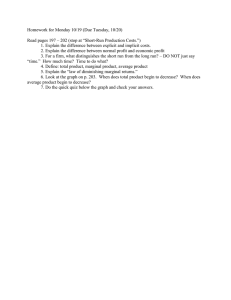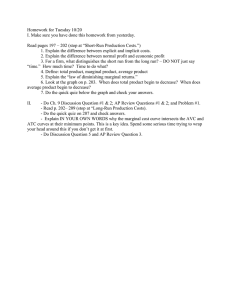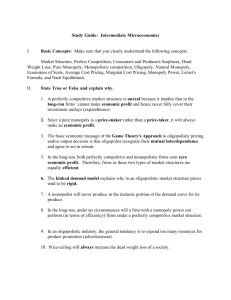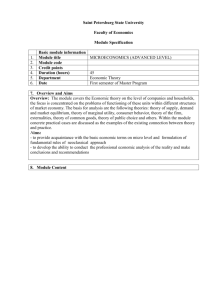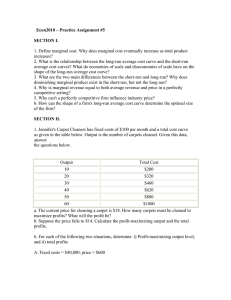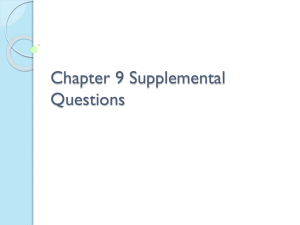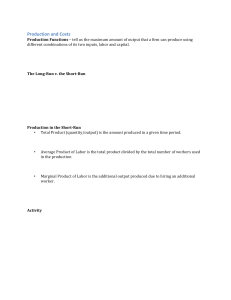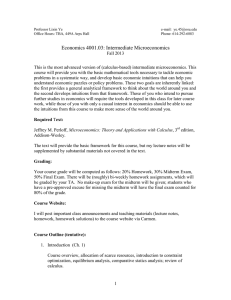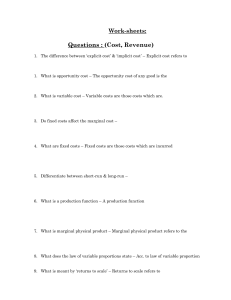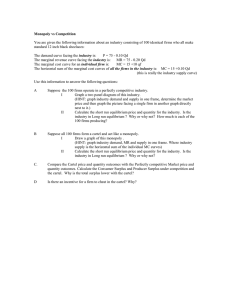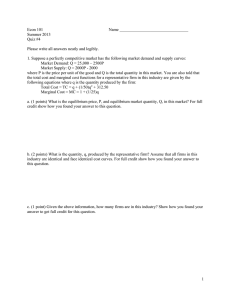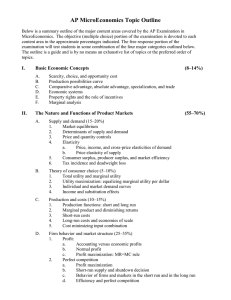Advanced Placement Economics Chapter 12
advertisement
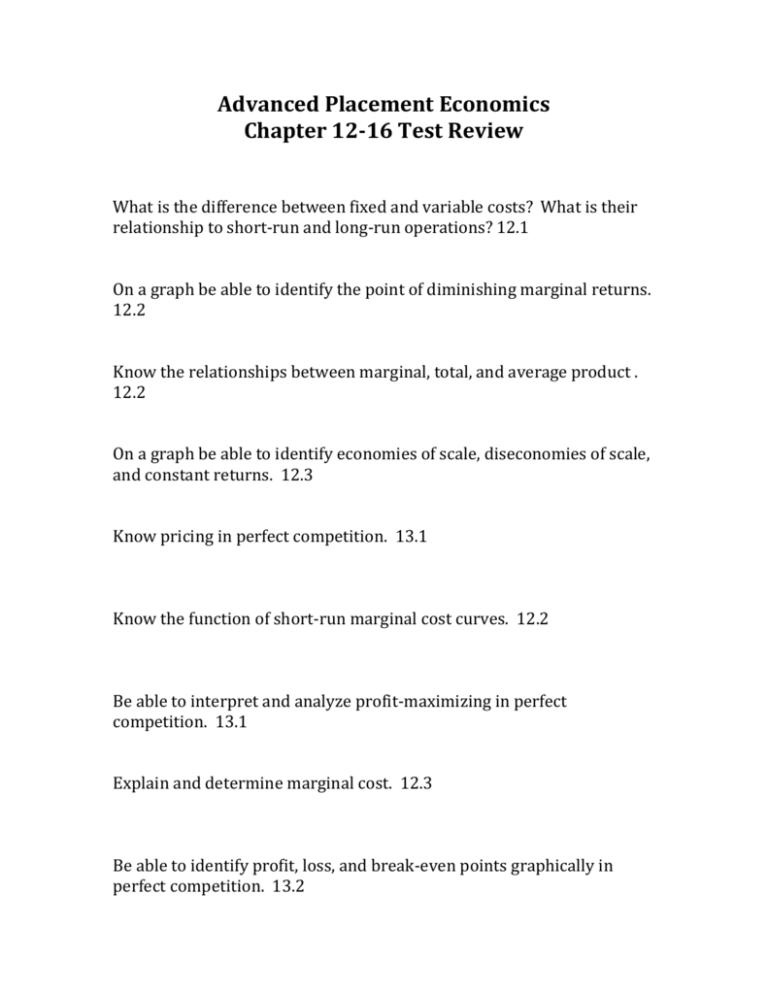
Advanced Placement Economics Chapter 12-16 Test Review What is the difference between fixed and variable costs? What is their relationship to short-run and long-run operations? 12.1 On a graph be able to identify the point of diminishing marginal returns. 12.2 Know the relationships between marginal, total, and average product . 12.2 On a graph be able to identify economies of scale, diseconomies of scale, and constant returns. 12.3 Know pricing in perfect competition. 13.1 Know the function of short-run marginal cost curves. 12.2 Be able to interpret and analyze profit-maximizing in perfect competition. 13.1 Explain and determine marginal cost. 12.3 Be able to identify profit, loss, and break-even points graphically in perfect competition. 13.2 Know short and long-run equilibrium in perfect competition. 13. Know the elasticity of demand in pure monopoly. 14.2 Be able to interpret on a graph profit- maximization in a monopoly. 14.1 Be able to identify consumer surplus, quantity produced, price setting, etc… on a graph for unregulated pure monopoly. 14.1,2,3 What is allocative and productive efficiency? Think of these in regards to the 4 Market types. What are the general characteristics of each of the 4 Market types? What is a “cartel” and how do firms in a cartel operate? What are their goals? What would this look like on a graph? Be able to analyze a pay-off matrix and identify Nash Equilibrium Why do firms in perfect competition shut down? What is price discrimination? What is product differentiation?
